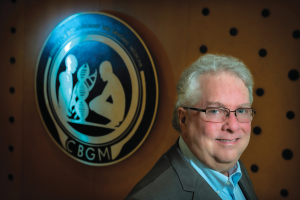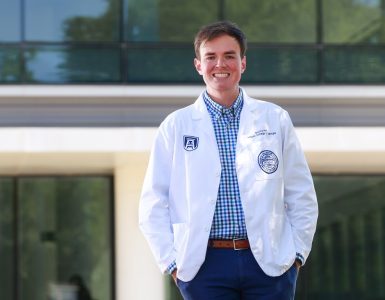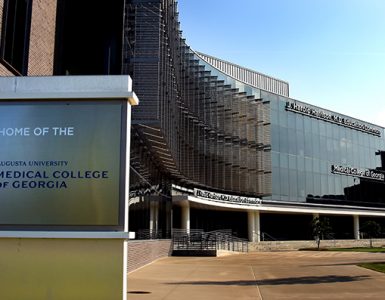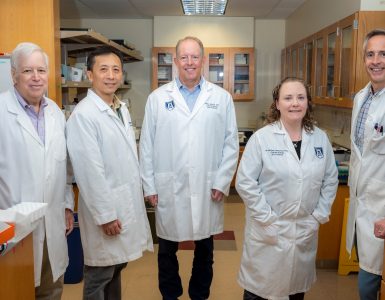Dr. Richard McIndoe, a bioinformatics expert who for nearly two decades has served as associate director of the MCG Center for Biotechnology and Genomic Medicine, is the center’s new director. McIndoe, who is also a Regents’ Professor in the MCG Department of Obstetrics and Gynecology, assumed his new role in October.

He is principal investigator on several multimillion dollar federal grants, including a $6.2 million initiative to support highly innovative research ideas in three areas with tremendous impact on health. The Innovative Science Accelerator, or ISAC, program establishes an expedited but still extensive review process that enables scientists to pursue some of their most innovative research ideas in diseases of the kidneys; the urinary tract in both sexes as well as the male reproductive organs; and the blood and bone marrow. The goal is to move science forward that matters to people’s lives, and the opportunities include giving particularly new scientists experience writing grants, going through the review process and generating findings.
Over the last 20 years, McIndoe has also directed the Coordinating and Bioinformatics Units for three national consortia funded by the National Institute of Diabetes and Digestive and Kidney Diseases. They include the Animal Models of Diabetic Complications Consortium, which had the primary responsibility of developing and characterizing animal models that mimic human diabetic complications, with the mission of creating these models and providing them, along with the data relevant to their characterization and the protocols used for their generation and analysis, to the scientific community. The consortium consisted of 13 Pathobiology Sites, one Mouse Generation and Husbandry Core and the CBU with investigators from 15 separate institutions across the United States.
He also is a principal investigator on the nearly 20-year-old, federally funded The Environmental Determinants of Diabetes in the Young, or TEDDY, Study, aimed at identifying how genetics and environmental triggers collide to cause type 1 diabetes.









